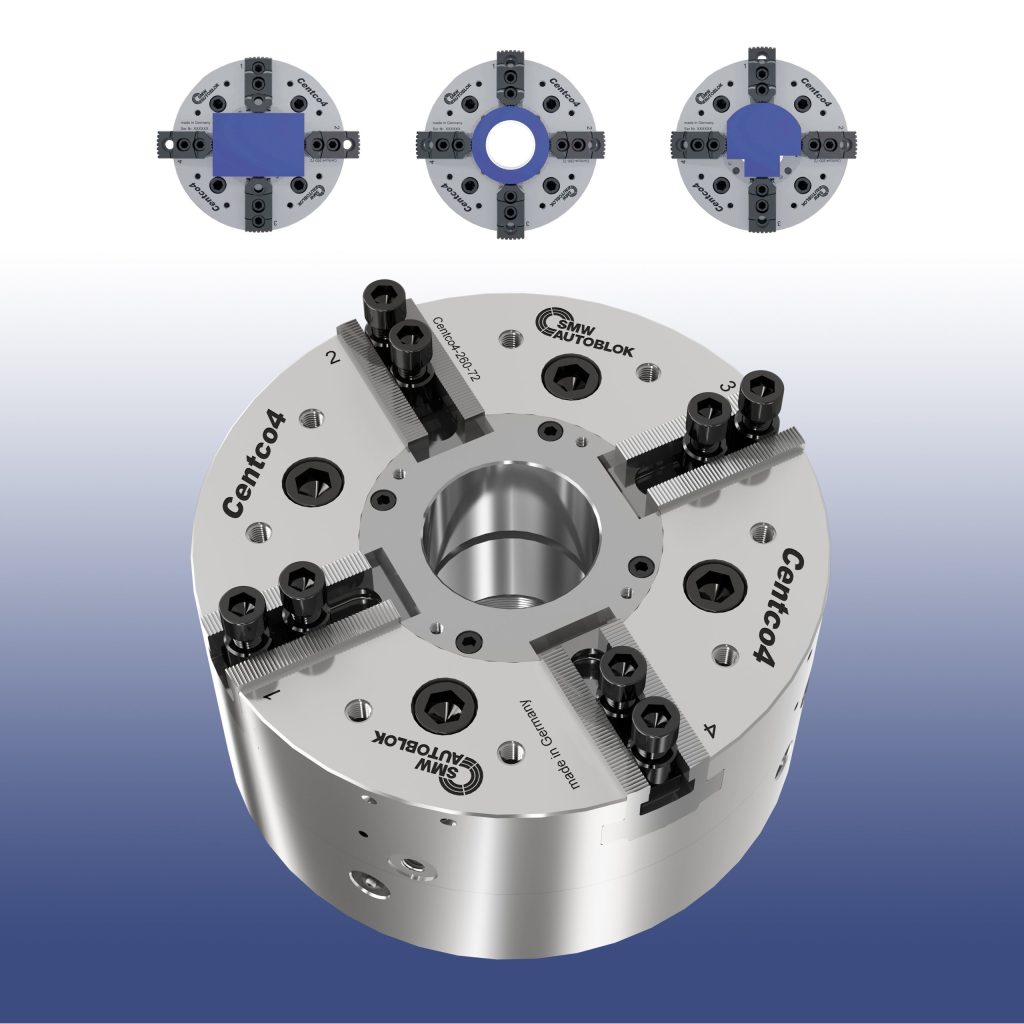Centco4 2+2 Self-Centering and Compensating Chuck
Centco4 2+2 Self-Centering and Compensating Chuck
SMW Autoblok introduces the versatile four-in-one Centco4 2+2 self-centering and compensating chuck. The Centco4's engineering and flexibility enables it to securely and efficiently clamp virtually any type or shape of geometric part including round, cubic, angular and irregular.

SMW Autoblok introduces the versatile four-in-one Centco4 2+2 self-centering and compensating chuck. The Centco4's engineering and flexibility enables it to securely and efficiently clamp virtually any type or shape of geometric part including round, cubic, angular and irregular.
The Centco4 is available in both power and manual models and is suitable for deformation-sensitive workpieces. The four-jaw Centco4 provides four times less deformation as compared with three-jaw clamping and can be used on all industry-specific machine tools. The ability to handle virtually any part shape means fewer chuck changeouts and vastly reduced downtime. Diverse manual and hydraulic applications include turning, milling, inspection and finishing operations.
"Some of the many Centco4 benefits are that it features two independent self-centering and compensating jaws and single wedge actuation that eliminates the need for a dual-piston cylinder," said Larry Robbins, president of SMW Autoblok's Commercial division. "The precision product delivers unlimited flexibility and is perfect for aerospace and automotive companies who are looking for one standard chuck that can clamp any part geometry."
The drive of the Centco4 moves toward or apart on two parallel axes and needs only one standard stroke single piston cylinder for actuation. This allows for independent, self-centering clamping via both axes. Centrifugal force compensation allows for maximum rotational speeds with up to 210 kn of gripping force with optimized lubrication system that saves both time and money in repairs and maintenance. Three sizes are available in the power version including: 210-52, 260-72, 315-92 and 400-112. A variety of synchron precision jaws are offered with a 1/16th x 90° interface.





